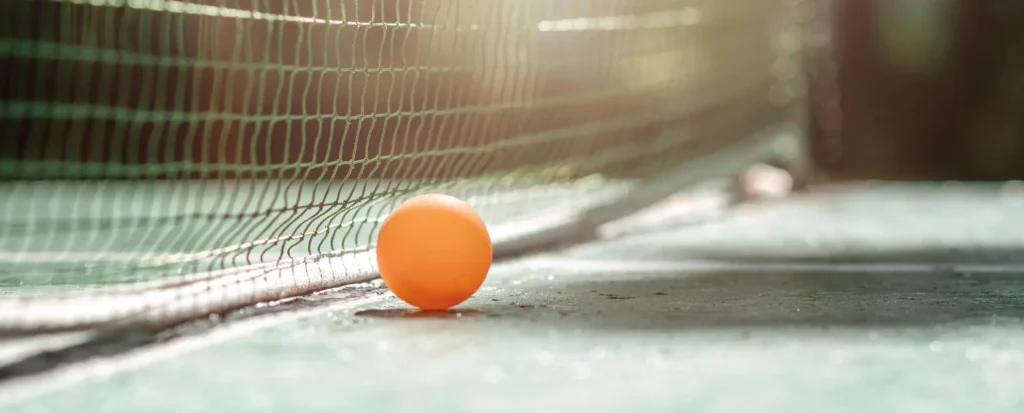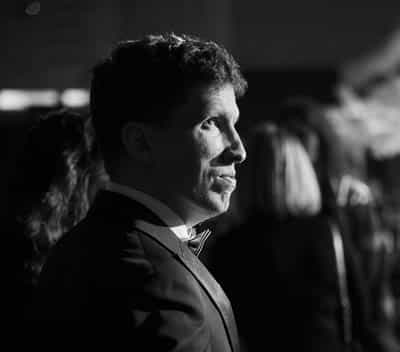Ping Pong – a Game of Life and Death
Let me transport you back to 1936, as Polish table tennis player Alojzy Ehrlich is in Prague to compete in the World Table Tennis Championships. Drawn against Romanian player Paneth Farkas, Ehrlich prepares to take part in what will become one of the most remarkable games of ping pong ever witnessed.

Anticipation builds in the arena as the match gets underway with the opening point. There’s stroke after stroke, return after return, as the first point of the match turns into an exhausting exchange of defensive play lasting an incredible, limb-aching two hours and 12 minutes!
With fatigue setting in for both players, Ehrlich deftly switches to play with his left hand and goes on to win the point as Farkas’ arm freezes up.
During this opening-point exchange, the ball crosses the net more than 12,000 times and there’s a notable casualty, as the umpire is replaced due to neck ache. To ‘remain relaxed’ throughout the epic 2-hour point, Ehrlich plays chess with his Polish teammate at the side of the court; calling out his chess moves whilst continuing to return the ball with his special chiseling bat.
As the second point begins, the arena is far emptier than at the start of the match – the crowd having funnelled out long ago. Twenty minutes into another super-long rally, a member of Ehrlich’s team decides it’s time for lunch, and reaches into his equipment bag to pull out a knife, a long loaf of bread and a two-foot Polish sausage.
Worrying that the Poles are preparing themselves for “a winter siege,” Farkas begins to attack. However, Ehrlich hasn’t earned the nickname “King of the Chiselers” for nothing, and he rebuffs the attacks, returning the ball time after time. Feeling frustrated, Farkas loses his cool and throws the ball and his bat “sailing wildly over the King’s head”, before running “screaming from the court.”
Alojzy Ehrlich finishes as runner up in the World Table Tennis Championships three times in his life, without winning it. But, it turns out that ping pong will have a far bigger impact on his life than he might have predicted.
I love this story. I originally began writing about it before the pandemic hit last year and I lost my way a little bit. Today, I returned to finish it.
The tactical game of ping pong is one I very much enjoy playing, and it has served me well as an ice breaker for connecting with some really interesting people around the world.
I think I would have enjoyed meeting and playing Alojzy Ehrlich. For me, playing ping pong is less about winning or losing – anyone can do that – and more about returning the un-returnable. Ehrlich was a chiseler – a defensive player – and I would consider myself the same.
I can look back on many memorable occasions over the years where I found myself competing in a match, flinging myself off to the side of the table to return a smash, and being greeted by astonished gasps and smiles from around the table. That’s my enjoyment – creating and sharing a moment, win or lose.
We can never predict what lies around the corner for us. But, with everything we do, we can open ourselves up to serendipitous moments and connections that can have a true and lasting impact on our lives and the lives of others.
And so it was with Alojzy Ehrlich. Six years on from his record-breaking two-hour table tennis point, Europe found itself in the grip of World War II. During this time, Ehrlich was captured by the Nazis and sent to the concentration camps of Auschwitz. He was staring death fully in the face in the gas chamber when a German guard recognised him as a ping pong champion and saved him.
Ehrlich returned to the game of table tennis following the war, becoming an international champion and a coach of the sport. The impact on his life of the humble game of ping pong is undeniable.


Alastair Hazell
I’m an internet entrepreneur and strategist with over two decades of experience. I love to explore emerging patterns in digital culture and human behaviour. You can connect with me on LinkedIn.

